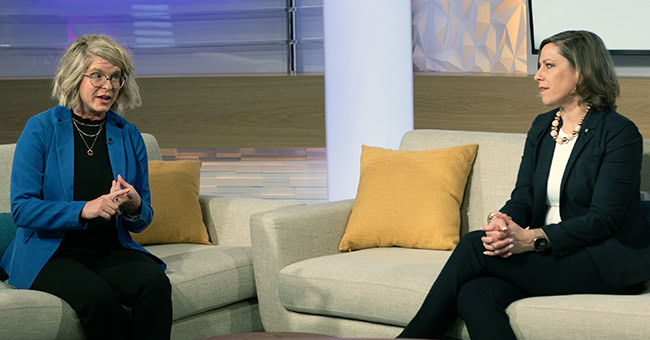PHOENIX (STN) – Every organization has a budget to balance and a bottom line to meet. However, every organization must be ready to answer the same two questions: What if we lose a significant amount of money? Or, what if we gain it?
As part of the ‘Leading in the Moment’ segment during the October 2024 episode of ‘It Happens at STN,’ UMOM leadership discussed what is commonly known in nonprofit sectors as the “million-dollar question.”
“It’s one of my favorite questions to think about and a question that I’ve grappled with in my career,” said UMOM COO Monique Lopez. “Is your executive leadership team prepared to have that discussion?”
Watch The Leading in the Moment Action Panel:
An unexpected influx of funds can be challenging for an organization to handle, and an unexpected loss of funding can cripple an organization, especially if there aren’t systems in place to manage sudden changes.
“Alignment is really important,” Lopez said. “From there, figuring out what your top priorities are over maybe one or two years.”
UMOM CEO Jackson Fonder believes that agreeing on priorities for spending or identifying potential cutbacks is just one part of the equation. How an organization reacts is an even bigger part, and to be successful, it must be discussed and practiced.

“You have to build it into your system of normal activity.”
- Jackson Fonder / UMOM CEO
“Dialogue begins to create alignment and starts to build the framework by which high-performing leadership can happen,” Fonder said. “Build a framework, [put] a system in place where leadership can have crucial conversations and make great decisions. You want to get pretty good at having those conversations during peacetime. Because if you’re only having them during a crisis, you’re putting out fires all the time.”
Lopez agreed that preparation is key to navigating any rapid change to day-to-day operations.
“It doesn’t matter what the criteria is,” she said. “That process—getting alignment on that criteria and then making a decision through that filtering—is critical.”
From his leadership position at UMOM, Fonder said being quick on your feet and adjusting to any change in circumstances must become second nature, especially for nonprofits.
“You have to build it into your system of normal activity,” he said. “It’s got to be a normal behavior that happens every day, every week, every month, every quarter. It just becomes routine.”




























